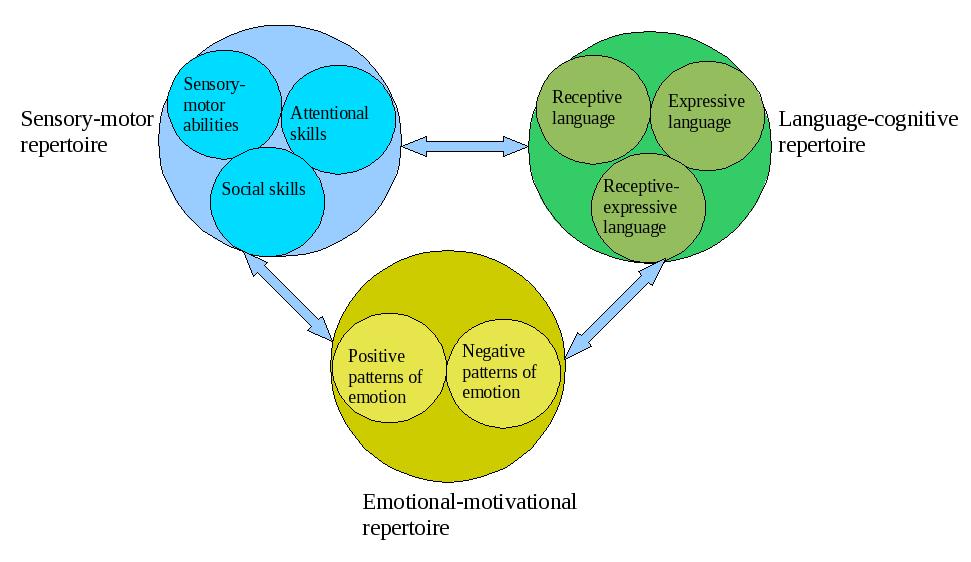Psychological trauma can significantly impact an individual’s emotional well-being, making everyday tasks seem overwhelming and affecting their ability to cope with daily life. It is important to recognize that, just like physical injuries, psychological wounds require attention and treatment to heal properly. Psychological rehabilitation offers a comprehensive approach to help individuals recover from trauma, enabling them to regain control over their lives and promote long-term mental well-being. In this article, we will explore the various steps involved in psychological rehabilitation and the crucial role they play in empowering individuals to overcome psychological trauma.

Understanding Psychological Trauma: Defining the Causes and Effects
Psychological trauma refers to the emotional and psychological response to a deeply distressing or disturbing event. It can stem from a wide range of experiences, such as abuse, violence, accidents, or even natural disasters. The causes of psychological trauma are multifaceted and unique to each individual, making it a complex phenomenon to understand. Nonetheless, there are several common factors that contribute to trauma, including:
- Physical or sexual assault
- Witnessing or experiencing violence
- Living through a life-threatening event
- Long-term exposure to stressful or abusive situations
- Loss of a loved one
- Chronic medical conditions
The effects of psychological trauma can be profound and long-lasting, affecting all aspects of a person’s life. Individuals who have experienced trauma often have difficulty coping with emotions, relationships, and daily functioning. Some common effects of trauma include:
- Post-Traumatic Stress Disorder (PTSD)
- Anxiety and panic disorders
- Depression and mood swings
- Flashbacks and intrusive memories
- Difficulty concentrating and sleeping
- Social withdrawal and isolation
It is important to understand that trauma affects individuals differently, and the severity of the effects can vary widely. While some may recover with time and support, others may require professional intervention to overcome the impact of trauma on their mental well-being.
Targeted Strategies for Emotional Healing and Recovery
In times of emotional distress, it is crucial to have effective strategies in place to aid in the healing and recovery process. By targeting specific areas of emotional well-being, individuals can empower themselves and take steps towards finding solace and inner peace. Here are some tried-and-true strategies that can assist in emotional healing:
- Mindfulness and Meditation: Practicing mindfulness and meditation can help individuals become more aware of their emotions and thoughts, allowing them to acknowledge and process their feelings in a healthy and non-judgmental manner.
- Supportive Network: Surrounding yourself with a supportive network of friends and family can provide a valuable source of emotional support. Sharing feelings and experiences with trusted individuals can foster a sense of connection and help in overcoming emotional challenges.
- Self-Care Routine: Developing a self-care routine can significantly contribute to emotional healing. Engaging in activities that bring joy and relaxation, such as exercise, reading, or taking a bath, can promote feelings of well-being and self-nurturing.
Moreover, certain targeted strategies can aid in addressing specific emotional wounds:
- Journaling: Writing down thoughts and feelings in a journal can provide a safe outlet for emotional expression and serve as a tool for self-reflection. This practice can offer clarity, facilitate healing, and promote personal growth.
- Therapeutic Techniques: Engaging in therapeutic techniques such as cognitive-behavioral therapy (CBT) or eye movement desensitization and reprocessing (EMDR) can help individuals process and heal from traumatic experiences or deep-rooted emotional wounds.
- Creative Outlets: Exploring creative outlets such as art, music, or dance can serve as a means of self-expression and emotional release. These mediums can provide a cathartic experience and allow individuals to channel their emotions into a tangible form.
Remember, healing and recovery take time, and it is essential to be patient and kind to oneself throughout the journey. These targeted strategies can provide valuable tools to aid in emotional healing, but it is important to seek professional help when needed and tailor these strategies to individual needs and circumstances. With persistence and self-care, one can gradually overcome emotional hardships and find renewed strength and resilience.
The Importance of Professional Help: Seeking Therapy and Support
Professional help is crucial when it comes to seeking therapy and support. These professionals possess the knowledge, skills, and expertise to provide individuals with the guidance they need to navigate through challenging times or mental health concerns. Here are a few reasons why seeking therapy and support from professionals is important:
- Expertise and Knowledge: Therapists and counselors are extensively trained in various therapeutic techniques and approaches. Their expertise allows them to understand and address the unique needs of each individual, offering tailored solutions and strategies.
- Safe and Non-Judgmental Spaces: Professional therapists create a safe and non-judgmental environment where individuals feel comfortable expressing their thoughts and emotions. They provide a confidential space for exploring personal issues and help develop coping mechanisms.
- Objective Insights: Seeking professional help allows individuals to gain objective insights into their thoughts, feelings, and behaviors. Therapists can provide an unbiased perspective and help individuals gain a deeper understanding of themselves and their patterns, enabling personal growth and self-improvement.
- Effective Strategies: Professionals equip individuals with effective strategies and tools to navigate challenges and improve their mental well-being. They can teach coping techniques, communication skills, stress management, and provide other evidence-based practices to foster positive change.
- Support Network: Therapists and support groups can serve as a valuable support network during difficult times. They offer empathetic listening, understanding, and validation, helping individuals feel less alone in their struggles.
Remember, seeking professional help is a sign of strength, not weakness. It is an important step towards taking control of one’s mental health and well-being, and should be encouraged and embraced by all.
Developing Resilience: Self-care and Coping Mechanisms
Developing resilience is crucial for maintaining good mental health and well-being, especially during challenging times. Self-care and coping mechanisms play an essential role in building resilience and helping individuals bounce back from adversity. Here are some effective strategies to incorporate into your daily routine:
- Practice mindfulness: Engage in activities that promote being present in the moment, such as meditation or deep breathing exercises. Cultivating mindfulness can help reduce stress and enhance emotional well-being.
- Stay physically active: Regular physical exercise releases endorphins, which are known as “feel-good” hormones. Incorporating activities like walking, jogging, or yoga into your routine can improve your mood and boost resilience.
- Nurture social connections: Surround yourself with supportive and positive individuals who can provide emotional support during challenging times. Maintain regular contact with family and friends through phone calls, video chats, or social media.
Additionally, developing coping mechanisms is essential for effectively managing stress and building resilience. Consider the following strategies to help you cope with difficult situations:
- Identify and challenge negative thoughts: When faced with adversity, negative thinking can hinder resilience. Practice recognizing negative thoughts and replacing them with more positive and realistic ones. This can help you develop a more resilient mindset.
- Set realistic goals: Break down larger goals into smaller, achievable tasks. By focusing on manageable steps, you can maintain motivation and a sense of accomplishment, strengthening your resilience along the way.
- Seek support when needed: It’s okay to reach out for professional help or talk to a trusted individual when the weight of a situation becomes overwhelming. Seeking support can provide valuable perspectives and help you navigate challenges more effectively.
Closing Remarks
In conclusion, psychological rehabilitation is a vital process for individuals seeking to recover from psychological trauma. By addressing the underlying emotional wounds and implementing the necessary steps, one can regain control over their mental well-being and lead a fulfilling life. Recognizing the signs of trauma, seeking professional help, and adhering to a structured treatment plan are crucial components of this journey. Additionally, practicing self-care, building a strong support system, and integrating positive coping mechanisms can provide invaluable support during the healing process. While each individual’s recovery is unique and may take time, it is important to remember that there is hope for a brighter future. With the right tools and support, anyone can embark on a path towards psychological healing and ultimately reclaim their lives from the shadows of trauma.
Psychological rehab is often used to treat people suffering from psychological trauma. Traumatic events such as abuse, trauma, or loss can leave lasting negative psychological effects that may require extensive medical, psychological, and social treatment to successfully recover from.
The first step in psychological rehabilitation is to provide safety. This may include removing an individual from their current environment if they are suffering any physical threats or personal danger. With safety ensured, the individual may then work with their healthcare provider to develop a treatment plan. This plan will vary based on the individual’s needs and may include trauma-focused therapy, medication, and other counseling and support.
A key component of psychological rehabilitation is trauma-focused therapy. This kind of therapy focuses on understanding and processing the trauma in a safe environment. It allows the individual to discuss their experiences and memories, ask questions, and challenge negative thoughts and beliefs. This helps the individual come to terms with the trauma, build resilience, and learn better coping strategies.
Psychological treatments may also include medications such guided imagery, stress reduction techniques, cognitive-behavioral therapy, and exposure therapy. Medications may also be used to provide symptom relief and help manage stress, fear, or other emotions related to the trauma.
Social support is an important part of psychological rehabilitation. Through support from friends, family, and professionals, individuals can gain strength and develop new coping skills. This support network also helps to reduce feelings of isolation and encourages participation in activities that increase self-awareness.
Overall, psychological rehabilitation is a process of restoring wellbeing and health after experiencing psychological trauma. Through therapeutic treatments, medications, social support, and other strategies, individuals can learn to cope, build resilience, and find meaning after traumatic experiences.







